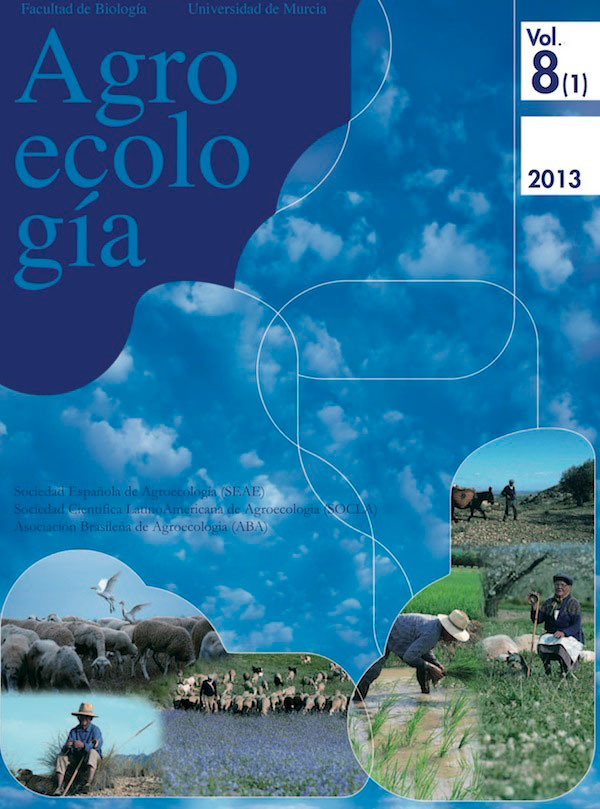Methodological approach for measuring the socio-ecological systems qualification resilience: a case study in the Colombian Andes
Abstract
This study proposes a methodology to measure agroecological resilience in peasant farming systems, comparing forms of agroecological cultural systems (a) within the conventional cultural systems(c) in the central Colombian Andes. A technical team joint with farmers measured agroecological resilience indicators in agroecological and conventional properties. The selected indicators include: a) characterization of the climatic event (threat), b) level of vulnerability, c) the farmers capacity of response. This study showed that agroecological farms tend to exhibit a higher resilience capacity tan conventionally managed farms in the face of climates risks. The definition and the identification of this capacity highlight the potential risk management strategies used by farmers identifying their response and adaptation capacity. Peasants using alternative cultural treatments were able to deal resist and recover from extreme meteorological events, thus serving as models for nearby farmers who experience greater damage from climate change.Downloads
Las obras que se publican en esta revista están sujetas a los siguientes términos:
1. El Servicio de Publicaciones de la Universidad de Murcia (la editorial) conserva los derechos patrimoniales (copyright) de las obras publicadas, y favorece y permite la reutilización de las mismas bajo la licencia de uso indicada en el punto 2.
2. Las obras se publican en la edición electrónica de la revista bajo una licencia Creative Commons Reconocimiento-NoComercial-SinObraDerivada 3.0 España (texto legal). Se pueden copiar, usar, difundir, transmitir y exponer públicamente, siempre que: i) se cite la autoría y la fuente original de su publicación (revista, editorial y URL de la obra); ii) no se usen para fines comerciales; iii) se mencione la existencia y especificaciones de esta licencia de uso.
3. Condiciones de auto-archivo. Se permite y se anima a los autores a difundir electrónicamente las versiones pre-print (versión antes de ser evaluada) y/o post-print (versión evaluada y aceptada para su publicación) de sus obras antes de su publicación, ya que favorece su circulación y difusión más temprana y con ello un posible aumento en su citación y alcance entre la comunidad académica. Color RoMEO: verde.





